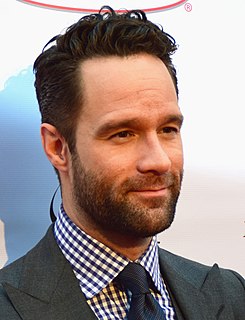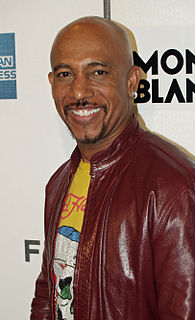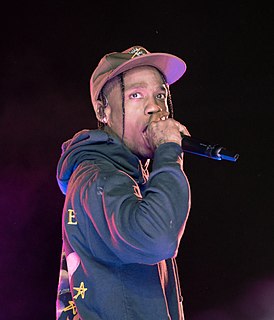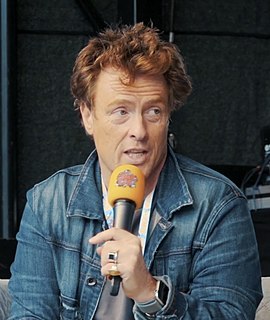A Quote by Chris Diamantopoulos
The Stooges used to be ubiquitous, back in the '60s and '70s. They were on TV all the time, but they're not on so much anymore. Kids aren't getting the chance to watch them, not to mention the fact that kids don't really necessarily relate to black-and-white stuff.
Related Quotes
I didn't like what was on TV in terms of sitcoms?it had nothing to do with the color of them?I just didn't like any of them. I saw little kids, let's say 6 or 7 years old, white kids, black kids. And the way they were addressing the father or the mother, the writers had turned things around, so the little children were smarter than the parent or the caregiver. They were just not funny to me. I felt that it was manipulative and the audience was looking at something that had no responsibility to the family.
When I think back, I felt like I had the life that a lot of white American kids grew up with in the suburbs in the States. I started noticing, as Apartheid's grip weakened, that we had more and more black kids at school; I had more and more black friends. But I never really saw a separation between myself and the black kids at school.
All my playmates were black. I lived in a little community called Archery (ph) in a rural area. And I didn't have any white neighbors at all. So all my kids with whom I fought and wrestled and went fishing and worked in the field and so forth were African-Americans. And that was my life. So when I got to be school age, we had to separate during the daytime, but I always felt like I was in an alien environment when I was in Plains, Georgia with white kids. I was eager to get back where I belonged with my black playmates.
I love everything black, because black is cool. When something crosses over, people are like, "Oh, this is a crossover." First of all, there is no urban anymore. Pop culture is black. White kids are dressing like black kids. It's all crossed the lines now. The way I understand it is, everything black is cool. When it crosses over to white, that means it's going from cool to uncool. That's what crossover is.
There are just certain things you can't talk about with kids. I just totally do not believe in this sort of Bart Simpson character who infects so much of our literature and film and TV stuff nowadays, these know-it-all kids who seem to understand the hypocrisy of the adult world so thoroughly and can talk about it with such articulateness. That's bunk. Kids are kids; they're innocents, they really are. For a long time, no matter what they see, no matter what they're exposed to, they can't get it until they have developed enough.


































